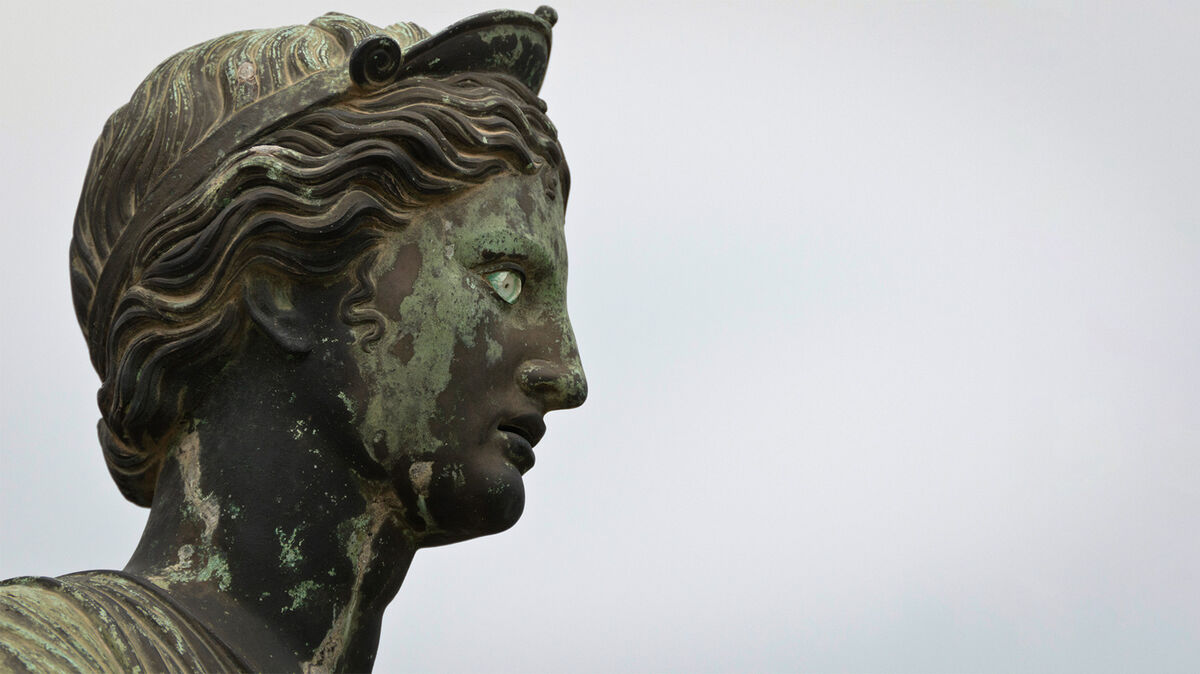
Artemis is among the important and powerful goddesses in Greek mythology. Expand your knowledge of ancient Greek deities by discovering these impressive and fascinating Artemis facts.
Artemis Goddess: Basic Facts
With her impressive lineage, there is no question that Artemis is a highborn figure in Greek mythology.
- Artemis is the daughter of a powerful duo. Her father is the Greek god Zeus. Her mother is the Titan goddess Leto.
- Artemis is one of the 12 Olympian deities who called the top of Mount Olympus home.
- Artemis is a twin. Her twin brother is Apollo, the Olympian god of the sun (among other domains).
- Leto gave birth to Artemis and Apollo on the island of Delos.
- Artemis herself is a Greek goddess. Her domains include the moon, the hunt, archery, the wilderness, and wildlife.
- Artemis was primarily known as the virgin huntress, though she is also called the goddess of nature.
- She was a patroness of hunters and childbirth, as well as a nurturer of the young and a protector of chastity.
Artemis Characteristics
Artemis enjoyed her independence. From the time she was a small child, she knew that she did not want to marry. She also had an introverted personality.
- As a child, she appealed to Zeus to grant her eternal virginity.
- She carefully guarded her own chastity. Anyone who attempted to violate her experienced a violent death.
- Artemis enjoyed spending time in the forest, where she would hunt but also protect the animals.
- She liked being surrounded by hunting dogs and wildlife, such as bears and deer.
- Artemis spent a great deal of time wandering the forests with her nymphs.
- Artemis was known for having a strong desire to protect and nurture.
- She could also be vicious. She was known to lash out in anger against those who did not adhere to her wishes.
- She would not tolerate transgressions against animals that she viewed as sacred.
- Artemis and her twin, Apollo, were both exceedingly protective of their mother (Leto). They actually killed the children of Niobe, who bragged to have borne more children than Leto.
Artemis Powers
As with other deities in Greek mythology, Artemis was quite powerful. Discover key powers of Artemis, goddess of the moon and other domains.
- As a Greek goddess, Artemis was immortal.
- She was highly skilled with a bow and arrow; she could aim perfectly every time.
- Artemis had the power to heal those who were ill or otherwise suffering.
- In contrast, Artemis could also bring on plagues, disease or death.
- Artemis could turn others into animal form, a power she often used as punishment. For example:
- After Zeus seduced one of her nymphs, Artemis transformed the nymph into a bear, which she killed.
- After Actaeon saw her without clothing, she transformed him into a deer, then sent his hunting dogs to kill him.
- Artemis also had the ability to transform herself into an animal.
Artemis Myths
There are some interesting mythological stories about Artemis. These myths explain some of the characteristics, personality traits and behaviors attributed to this introverted goddess.
- Legend has it that Leto easily gave birth to Artemis, but struggled to give birth to Apollo. Some stories claim that Leto's efforts to bring Apollo into the world were so challenging that Artemis, immediately after her own birth, helped her mother deliver her twin brother.
- Because of her role in bringing Apollo into the world, it is said that Artemis took on a guardianship role in her brother's life. As the story goes, this had an impact on her outlook on the young and others in need of protection. This may be why the goddess Artemis is believed to have such an affinity for nurturing and protecting the young.
Artemis Symbols
Several symbols are often associated with Artemis. Symbols often depicted in artwork illustrating the goddess' likeness include:
- bow and arrow
- deer
- hunting dogs
- hunting knives
- quiver
Beyond Basic Artemis Facts
Artemis is but one of many figures in Greek mythology. In addition to these interesting Artemis facts, further explore the world of mythology. Start by discovering several examples of famous Greek myths. Then, explore even more myth story examples around the world. To get a sense of how mythology continues to influence the modern world, review some English words with origins in Greek mythology.